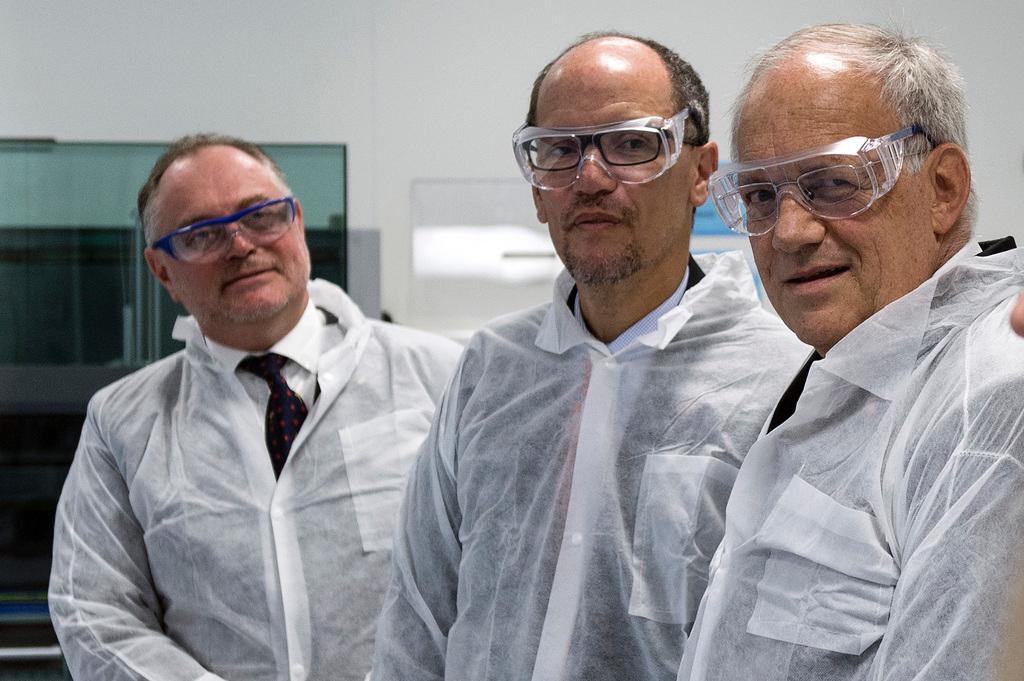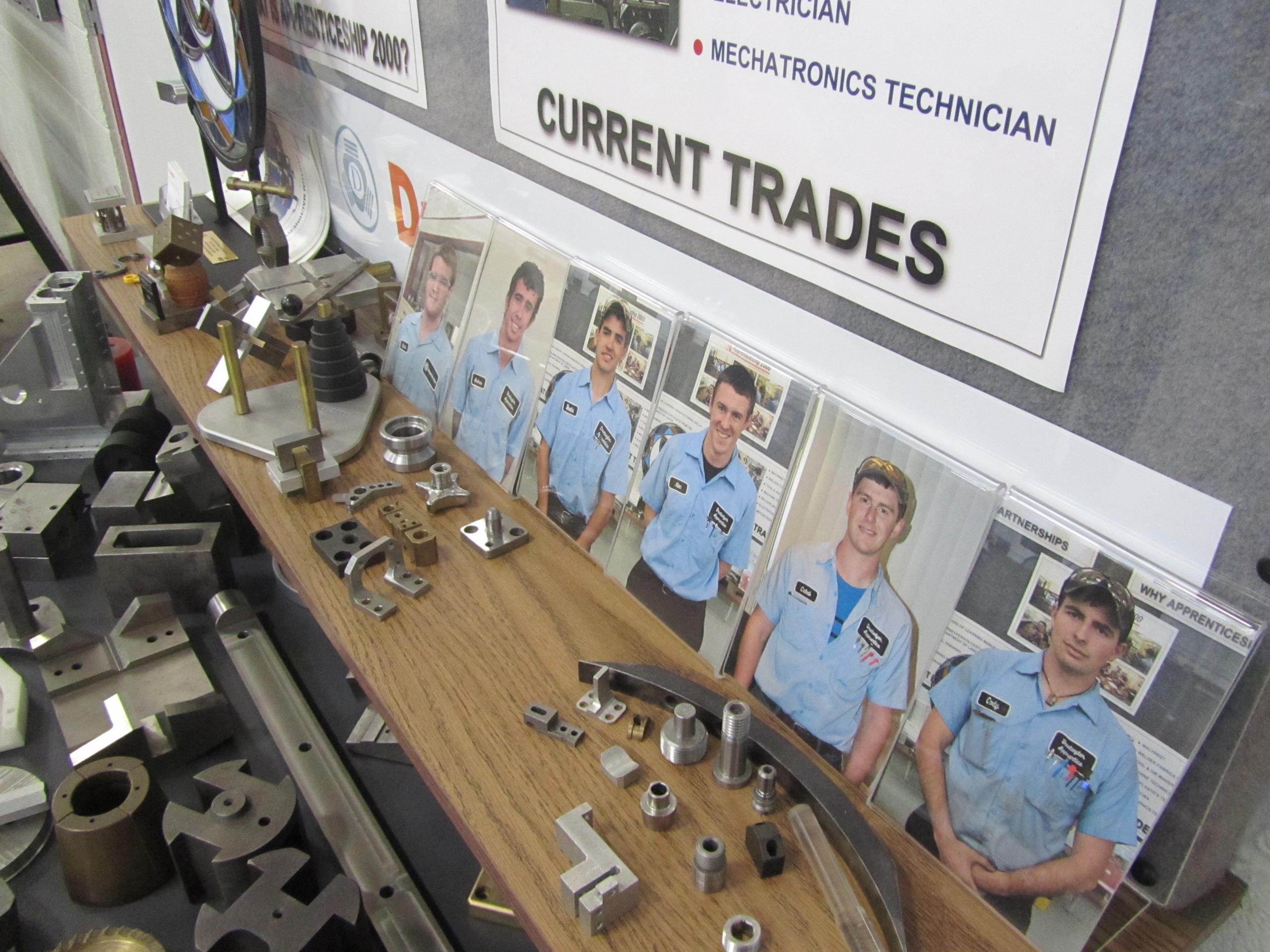US signs up to learn how Swiss apprenticeships work

Switzerland and the United States deepened their ties in Bern on Tuesday as ministers from the two countries signed an agreement to work together on apprenticeships. The US has become increasingly interested in the Swiss vocational learning model and wants to push the work-based training system at home.
“You [Switzerland] have an unemployment level that is among the lowest in the world, and that is a tribute to your model,” US Secretary of Labour Thomas Perez told swissinfo.ch. Perez had just joined Swiss Economics Minister Johann Schneider-Ammann in meeting apprentices at CSL Behring, a biotherapeutics company in Bern.
Over 1,300 staff are employed at the Swiss site, and there are currently 40 apprentices in nine different occupations. It was here that Gardasil, the HPV vaccine against ovarian cancer, was developed.
Perez was in Switzerland to sign a joint declaration of intent – an agreement between Switzerland and the US to work together, sharing knowledge on work-based learning. The document lays out a shared understanding of how education and training are important for “individual development and achievement, economic development, and social growth”.
The document is valid for three years. It’s hoped that in this time companies in the US can use ways of working that the Swiss companies have come up with to incorporate apprentices into their business. The visit to CSL Behring was a chance for Perez to find out how apprentices fit in to a workplace.
One of the company’s young trainees is Sarah Ryter. A bright 17-year-old, she’s working as a lab technician in the biology sector. It’s her third and final year of training. “I was fascinated by biology because of the cells and viruses,” she told swissinfo.ch, explaining why she chose this particular apprenticeship.
The young people move around to different jobs within their department in the company every six months, to get a wide overview of the positions that exist and what they involve.
“At the moment I’m working in cell culture…it’s like they’re your babies – you have to feed them and make sure they have enough space to grow,” Ryter said.
Trained for the industry
CSL Behring has welcomed educational authorities from other countries in Europe and has had an official visit from Bulgaria to see how apprentices are incorporated into their business model, but this was the first visit by a US minister. The company’s senior vice president, Uwe Jocham, explained to the two ministers that the firm “needs those who are already educated, and those who do the training here in house”.

More
Training to be the best: champion apprentices
“We are covering the needs of our skilled future workforce…it is always ideal if they ‘grow up’ with the systems that we need – that’s the simple reason,” Jocham said on why the firm takes apprentices. “A company like us also has a responsibility – we train more than we need ourselves. We train these people also for their career outside the company – it’s give and take”.
Perez believes companies in the US can adapt to this way of thinking. “So many Swiss businesses have generational success because they’re not just thinking about their next quarterly earnings report, they’re thinking long term – and that is what motivates companies to invest in 40 apprentices when only a fraction of them will work for your company.”
Perez mentioned a “virtuous cycle” where companies recruit staff who have been trained by others, and where apprentices sometimes leave a firm to do further training and then later return. President Obama has set a goal of doubling the number of apprentices in the US over the next five years, and Perez believes parents can be convinced of the training system’s value. “I always refer to apprenticeship as the other college – except without the debt. I now speak to young apprentices in the United States who have no debt and have remarkable skill and a career pathway.”
The agreement will also be good for the Swiss, according to Schneider-Ammann. “Switzerland will benefit in exchanging experiences, in learning about the US processes, and in getting the chance to compare [ourselves with the US]. Even if it’s in very small details we will benefit.”
Of course, the agreement is not just important for developing apprenticeships and promoting trade. It is also “a means for strengthening the ties between the two countries”, according to the official document, and is also diplomatically important, to enable easier discussions with the US on other topics, as Schneider-Ammann told swissinfo.ch. “From time to time we go through some sort of ‘thunderstorms’ – I’m hinting at the financial industry,” he said. “The symbolic side is important.”

In compliance with the JTI standards
More: SWI swissinfo.ch certified by the Journalism Trust Initiative
















You can find an overview of ongoing debates with our journalists here . Please join us!
If you want to start a conversation about a topic raised in this article or want to report factual errors, email us at english@swissinfo.ch.